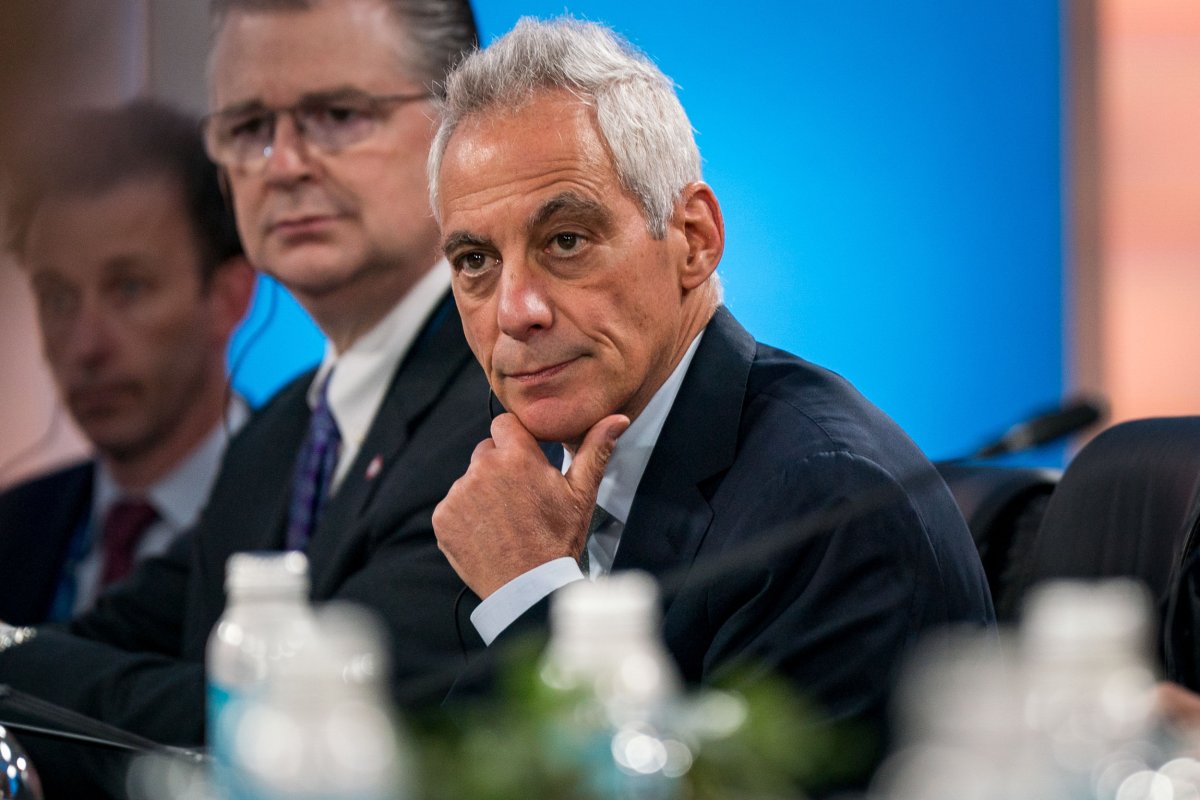The U.S. ambassador to Japan, Rahm Emanuel, has called for the formation of a coalition of allies in the Indo-Pacific region to push back against China’s economic practices.
In an op-ed published by the Wall Street Journal on Tuesday, Emanuel emphasized that China’s recent aggressive behavior has prompted regional powers to strengthen their own partnerships, with the aim of economically isolating China.
“China’s operating principle—power and might equals right—is evident in its combative diplomacy, military aggression against its Indo-Pacific neighbors, and economic coercion,” Emanuel wrote.
He highlighted how these tactics have backfired on China, leading to deeper collaboration between the U.S. and its regional allies. “Over the past three years, the U.S. and its allies in the region have strengthened their partnerships and transformed the security landscape, isolating China,” he added.

Rahm Emanuel during a bilateral meeting at the Asia-Pacific Economic Cooperation (APEC) summit at the Moscone Center on November 14, 2023, in San Francisco, California. He called for a united economic strategy against China.
Kent Nishimura/Getty Images
Emanuel credited the Biden administration with advancing what he referred to as the “hub and spoke” alliance structure, reinforcing U.S. ties with individual countries in the Indo-Pacific. He pointed to closer bilateral relations over the past year, such as those between Japan and South Korea, and Japan and the Philippines, as indicators of a shifting regional dynamic.
Emanuel characterized China’s economic practices as coercive and mercantilistic, saying they incorporate so-called debt-trap diplomacy aimed at controlling international markets. He also argued that China has attempted to punish neighboring countries for policy decisions it opposes by imposing boycotts, regulatory barriers and export restrictions. This, he suggested, has opened doors for some nations to diversify their trade relationships away from Beijing’s influence.
He cited Australia’s experience as a case in point. After Canberra called for an independent investigation into the origins of the COVID-19 pandemic, China responded with sweeping tariffs on Australian goods.
Instead of bowing to Chinese pressure, Australia found alternative markets for its products, like beef and wine. “China has provided the free world with an opening,” Emanuel wrote. “The U.S. must now further integrate economic statecraft into its wider strategic latticework architecture.”
This call for a united economic strategy against China comes as Japan’s new prime minister, Shigeru Ishiba, pushes for a stronger military alliance in the region.
Ishiba has proposed creating an “Asian NATO” to counter the security threats posed by the cooperation between China, Russia and North Korea. In a recent op-ed for the Hudson Institute, he argued that with an enhanced alliance system, centered on the Japan-U.S. relationship, such a coalition could eventually evolve into a regional NATO-like entity.
“If these alliances are upgraded, a hub-and-spoke system, with the Japan-U.S. alliance at its core, will be established; and in the future, it will be possible to develop the alliance into an Asian version of NATO,” Ishiba wrote, cautioning: “Ukraine today is Asia tomorrow.”
China has consistently argued that U.S. efforts in the Indo-Pacific, including initiatives like the QUAD and AUKUS partnerships, are intended to create a regional bloc mirroring NATO’s presence in Europe.
U.S. officials have been more circumspect about such comparisons, with Daniel Kritenbrink, assistant secretary of state for East Asian and Pacific Affairs, recently describing proposals for a regional NATO as “premature.”








